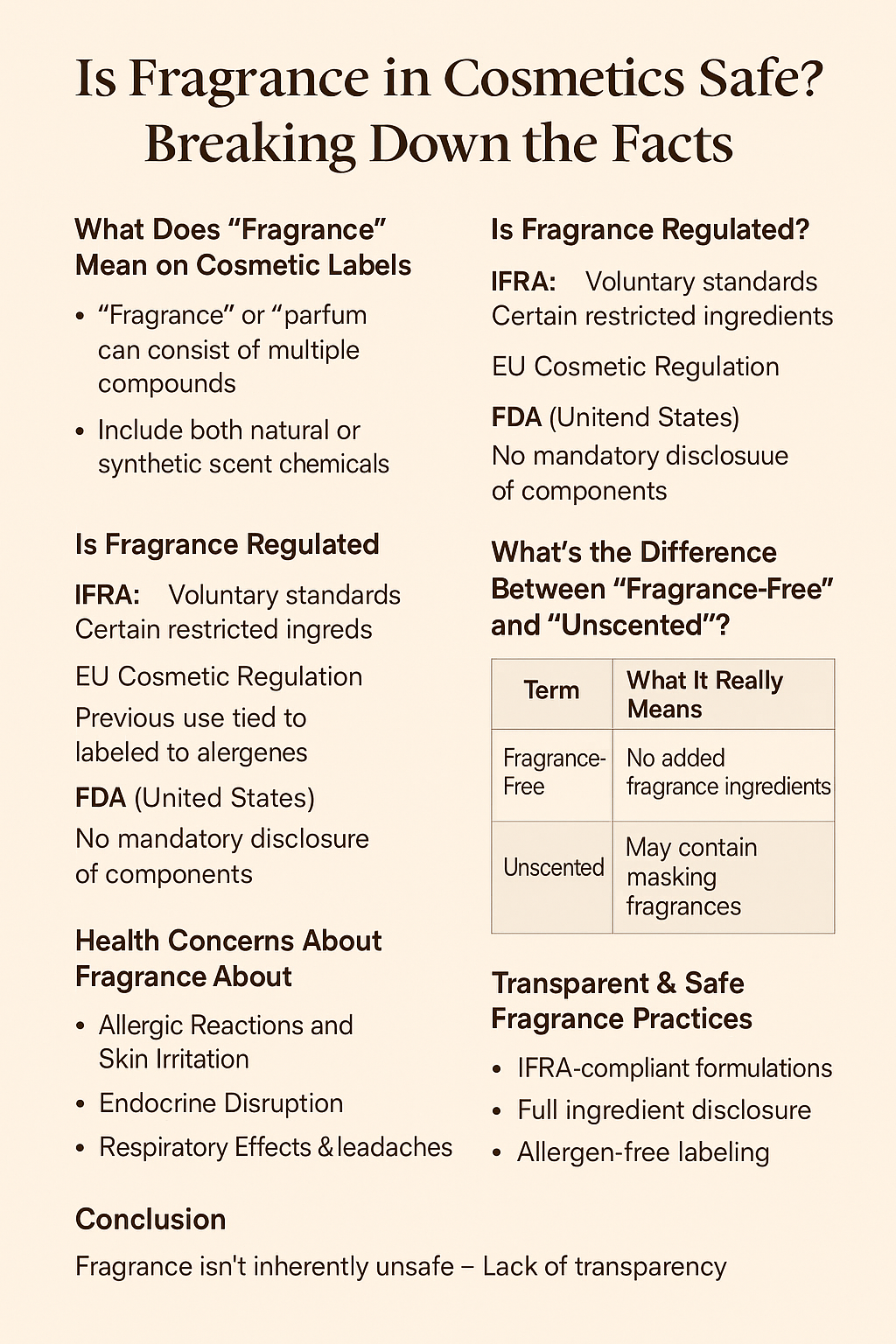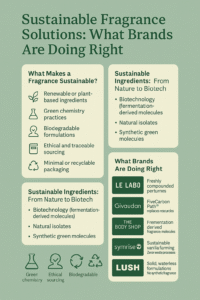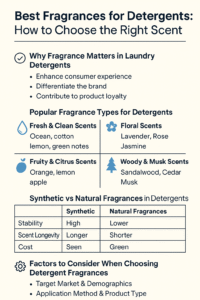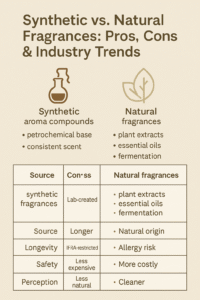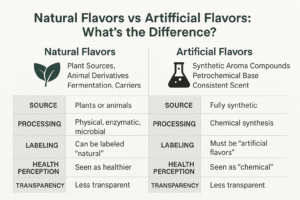🧴 Is Fragrance in Cosmetics Safe? Breaking Down the Facts
Fragrance is found in nearly every cosmetic product—from lotions to lipsticks to serums. It enhances the sensory experience and contributes to brand identity. But increasingly, consumers are asking: Is fragrance in cosmetics actually safe?
Let’s explore what “fragrance” really means on product labels, what the science says about safety, and how industry regulations aim to protect consumers.
🧾 What Does “Fragrance” Mean on Cosmetic Labels?
In cosmetics, “fragrance” (also labeled as parfum) is not a single ingredient—it’s a complex mixture of anywhere from 10 to over 100 compounds, including aroma chemicals, essential oils, and solvents.
According to the U.S. Food and Drug Administration (FDA), fragrance formulas are considered proprietary 和 do not require full disclosure under current regulations [1]. That means consumers often don’t know exactly what’s in a product labeled “fragrance.”
🔍 Is Fragrance Regulated?
✅ IFRA (International Fragrance Association)
The IFRA sets globally recognized standards that restrict or ban the use of certain fragrance materials based on safety assessments by the Research Institute for Fragrance Materials (RIFM).
For example, ingredients like nitromusks 和 musk ketone are prohibited due to bioaccumulation and potential toxicity [2].
🇪🇺 EU Cosmetic Regulation
The European Union is stricter. Cosmetic products must label 26 specific fragrance allergens (like limonene, linalool和 citral) when they exceed certain concentrations [3]. This transparency is intended to help sensitive consumers avoid allergens.
🇺🇸 FDA (United States)
The FDA does not require full disclosure of fragrance components unless a specific compound is known to be harmful or causes allergic reactions. However, companies are responsible for ensuring product safety [1].
⚠️ Health Concerns About Fragrance
1. Allergic Reactions and Skin Irritation
According to the American Academy of Dermatology (AAD), fragrance is among the top five allergens in skincare and cosmetic products [4]. Even natural essential oils (like lavender or tea tree) can cause dermatitis in sensitive individuals.
🔬 A 2021 study published in Contact Dermatitis found fragrance allergens were present in 78% of “natural” skincare products sold in the EU [5].
2. Endocrine Disruption
Some fragrance components—particularly older formulations—have been linked to hormone-disrupting effects. For example, phthalates, once used to help fragrances last longer, are suspected endocrine disruptors.
While many companies have phased out phthalates, some low-cost or imported cosmetics may still contain them. Look for labels that specify “phthalate-free”.
3. Respiratory Effects & Headaches
Fragrance particles, especially in aerosolized forms like body sprays, may trigger asthma, migraines, or sinus issues in some individuals. These reactions are not necessarily toxic but can affect sensitive users [6].
🤔 Are All Fragrances Unsafe?
Not at all.
Many fragrance compounds are safe when used at regulated concentrations. IFRA and RIFM conduct toxicological reviews to determine safe exposure levels for consumers, and most major cosmetic companies follow these voluntary standards.
Also, synthetic doesn’t mean unsafe. In fact, synthetic aroma molecules are often more stable, more sustainable, and less allergenic than unrefined natural oils.
🌱 For example, synthetic linalool (a floral scent) can be purer and less reactive than natural versions extracted from plants.
🔍 What’s the Difference Between “Fragrance-Free” and “Unscented”?
| Term | What It Really Means |
|---|---|
| Fragrance-Free | No added fragrance ingredients—natural or synthetic. |
| Unscented | May contain masking fragrances to cover up unpleasant raw material odors. |
| Naturally Scented | Contains essential oils or botanical extracts; not necessarily safer or allergy-free. |
| Clean Fragrance | Not a regulated term; varies by brand definition. |
Be aware that “fragrance-free” is the only reliable claim if you are fragrance-sensitive.
🔎 Transparent & Safe Fragrance Practices
More brands are now choosing to:
- Use IFRA-compliant fragrances
- Offer full disclosure of fragrance components (e.g., The INCI Decoder movement)
- Label “allergen-free” products for sensitive skin
- Develop biodegradable fragrance capsules to reduce skin contact and increase longevity
Companies like Lush, Beautycounter, The Ordinary和 Paula’s Choice are leading with ingredient transparency and safer fragrance practices.
🛡️ What Can Consumers Do?
- Check for “fragrance-free” 或 “hypoallergenic” labels
- Review ingredient lists using tools like EWG’s Skin Deep 或 INCI Decoder
- Choose brands that publish their full ingredient disclosures
- When in doubt, patch test any product before use
✅ Final Thoughts
Fragrance in cosmetics is not inherently unsafe—but lack of transparency can be. While most formulations are regulated and safe for the general population, those with allergies or sensitivities should choose fragrance-free options or vet their products carefully.
The industry is moving toward more responsible practices, including clean-label disclosure, biotech fragrance和 reduced allergenicity. As awareness grows, consumers and brands alike can push for a safer and more transparent scented future.
📚 References
- U.S. FDA – Fragrance Ingredients in Cosmetics
- IFRA – Fragrance Safety Standards
- European Commission – Cosmetic Regulation (EC) No 1223/2009
- AAD – Fragrance Allergy
- Lene Møller-Larsen et al., Contact Dermatitis, 2021
- Caress SM, Steinemann AC. Journal of Environmental Health. 2009

